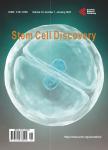Cell based therapy aides in infection and inflammation resolution in the murine model of cystic fibrosis lung disease
Cell based therapy aides in infection and inflammation resolution in the murine model of cystic fibrosis lung disease作者机构:Department of Pediatric Pulmonology Case Western Reserve University Cleveland USA
出 版 物:《Stem Cell Discovery》 (干细胞探索(英文))
年 卷 期:2013年第3卷第2期
页 面:139-153页
学科分类:1002[医学-临床医学] 100201[医学-内科学(含:心血管病、血液病、呼吸系病、消化系病、内分泌与代谢病、肾病、风湿病、传染病)] 10[医学]
主 题:Inflammation Mesenchymal Stem Cells Antimicrobial Activity
摘 要:Cystic fibrosis (CF) is a genetically inherited disease which is characterized by excessive inflammation and inability to resolve infection with pathogens such as Pseudomonas aeruginosa. Treatment options have improved with correctors and potentiators, but a cure remains elusive. Human mesenchymal stem cells (hMSCs) have the potential to be both anti-inflammatory and anti-microbial, which makes them ideal candidates for exploration as an innovative new therapeutic for CF. Using a sublethal CF mouse model of chronic Pseudomonas aeruginosa infection, we show that hMSCs and wild type bone marrow derived macrophages (BMM) have the capacity to attenuate inflammation while at the same time improving the ability to resolve infection. Animals infected with bacteria and treated with hMSCs and BMM had less weight lost, decreased pro-inflammatory cytokines, decreased severity of gross lung pathology as well as clinical score. Importantly, even though the inflammation was decreased in vivo, both BMM and hMSC treatment resulted in significant decrease in lung bacterial load. The improvement in the CF model was consistent with hMSC induced anti-inflammatory and anti-microbial activity which may involve the cathelicidin LL-37. These studies suggest that both healthy MSCs and BMM may provide important new direction toward cell based therapies in CF.



